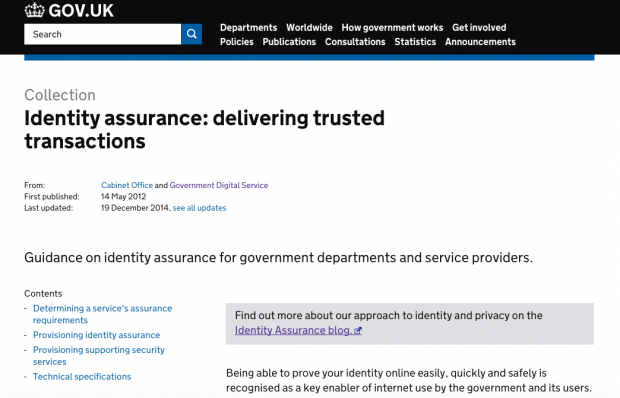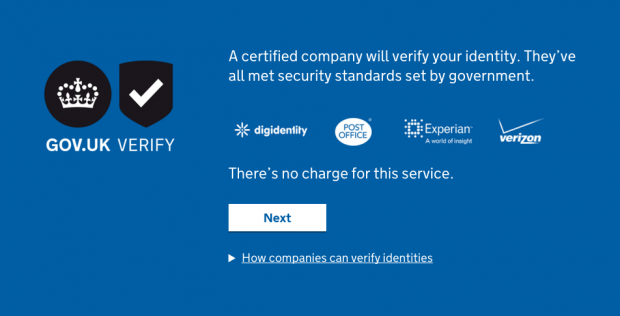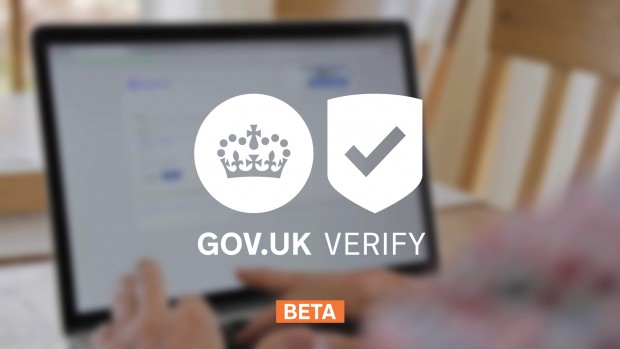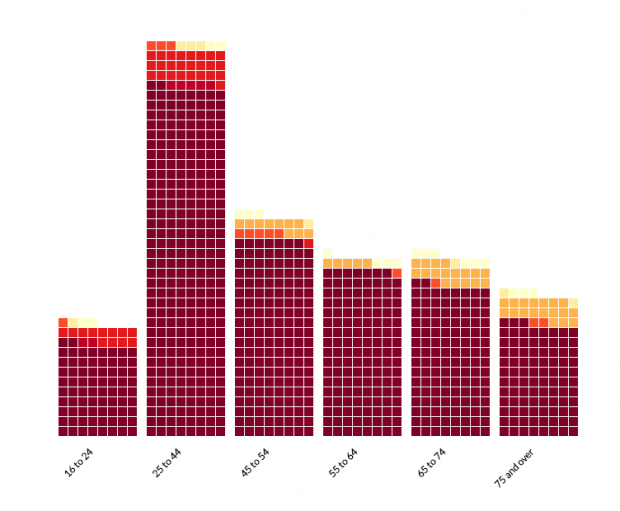What kind of fraud do our standards prevent?

...step such as having a one-off code sent to your mobile phone or generating a code in an authentication app. Therefore, if your information is lost or compromised it will...

...step such as having a one-off code sent to your mobile phone or generating a code in an authentication app. Therefore, if your information is lost or compromised it will...
...to their newer versions so we continue to run the most up-to-date and secure code Things we plan to do next In the coming 2 to 3 weeks we expect...

...GOV.UK Verify in accordance with the Technology Code of Practice, the Identity Assurance Principles and the Code of Interoperability. We’ll need to adapt these procedures to work for local government...
...mind, our new Privacy Officer will be looking at new ways to keep you updated on privacy related activities. Keep an eye on the blog for further news on this....

...competing identity providers means we see continuous innovation and investment. The identity providers have introduced new sources of data and new methods to make it easier for people to verify...

...transfer skills throughout the team. It also produces high quality, maintainable code. In situations where it doesn't make sense to pair, we ensure peer review as a minimum to see...
...second step can be a code sent to a mobile phone (one of the more commonly used methods), or it can be another method such as a code communicated to...
...Verify is for. The new text introduces the idea that GOV.UK Verify ‘is a new scheme to fight the growing problem of online identity theft’. continued to make changes to...

...constantly developing that so that it’s as clear as possible to services what they will need to do, and any new needs arising from new services adopting GOV.UK Verify are...

...- will improve GOV.UK Verify for our users. We’ve got some big improvements planned, including new types of evidence and new ways of proving activity history. These will mean certified...